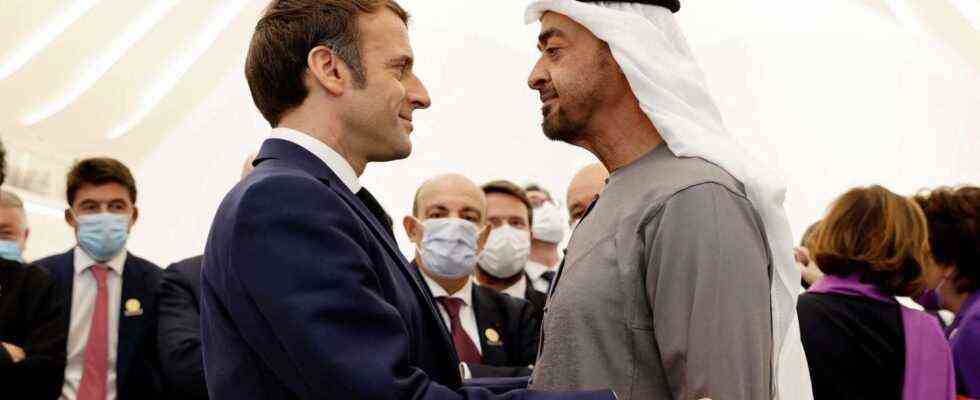The setting, that of the Dubai World Expo, each with more grandiose pavilions than the next, lends itself to staging. The signing of the record contract for the sale of 80 Rafale in the United Arab Emirates (UAE) was nevertheless held in relative discretion on the morning of Friday, December 3. The French president had barely landed in the economic capital of the Emirates, the first stop on a two-day express visit to the Gulf.
Some photos taken on the fly in a vast marble palace, no joint press conference between Emmanuel Macron and Crown Prince Mohammed Ben Zayed: after an interview, the two men and their delegation just had lunch together in a nearby restaurant, for celebrate this long awaited and controversial moment.
The contract, accompanied by the sale of twelve Airbus Caracal helicopters and various economic partnership agreements, certainly puts an end to years of negotiations between three French presidents – Nicolas Sarkozy, François Hollande then Emmanuel Macron – and their Emirati counterparts. With this signing, Dassault Aviation also succeeds in the feat of exporting more aircraft to its six client countries than it has sold, at this stage, to the French armies. From the point of view of French officials, something to be consoled for in part for the setback suffered in mid-September, when Australia gave up the purchase of twelve French conventional submarines, in favor of American nuclear-powered ships, after the announcement of the defense pact between Canberra, London and Washington, negotiated behind Paris.
France, “a solid partner”
“It is the largest military contract with a French component in our history”, welcomed Mr. Macron, crossing the press a little later, without his host of the day. Building on this export success – amounting to some 17 billion euros -, the Head of State then visited, with a smile on his lips, the French pavilion at the 2020 Universal Exhibition. As it should be. in this type of event, the latter seeks precisely to showcase French technology and culture.
The only downside, which perhaps explains the sobriety of this announcement: the criticisms of human rights organizations on this visit. ” The signing of contracts and the establishment of strategic partnerships cannot be done to the detriment of fundamental rights ”, had denounced Amnesty International the day before: ” To date, France’s partnership with Saudi Arabia and the United Arab Emirates has failed to change the war practices of the military coalition engaged in Yemen that these two countries lead. “
You have 50.58% of this article left to read. The rest is for subscribers only.

